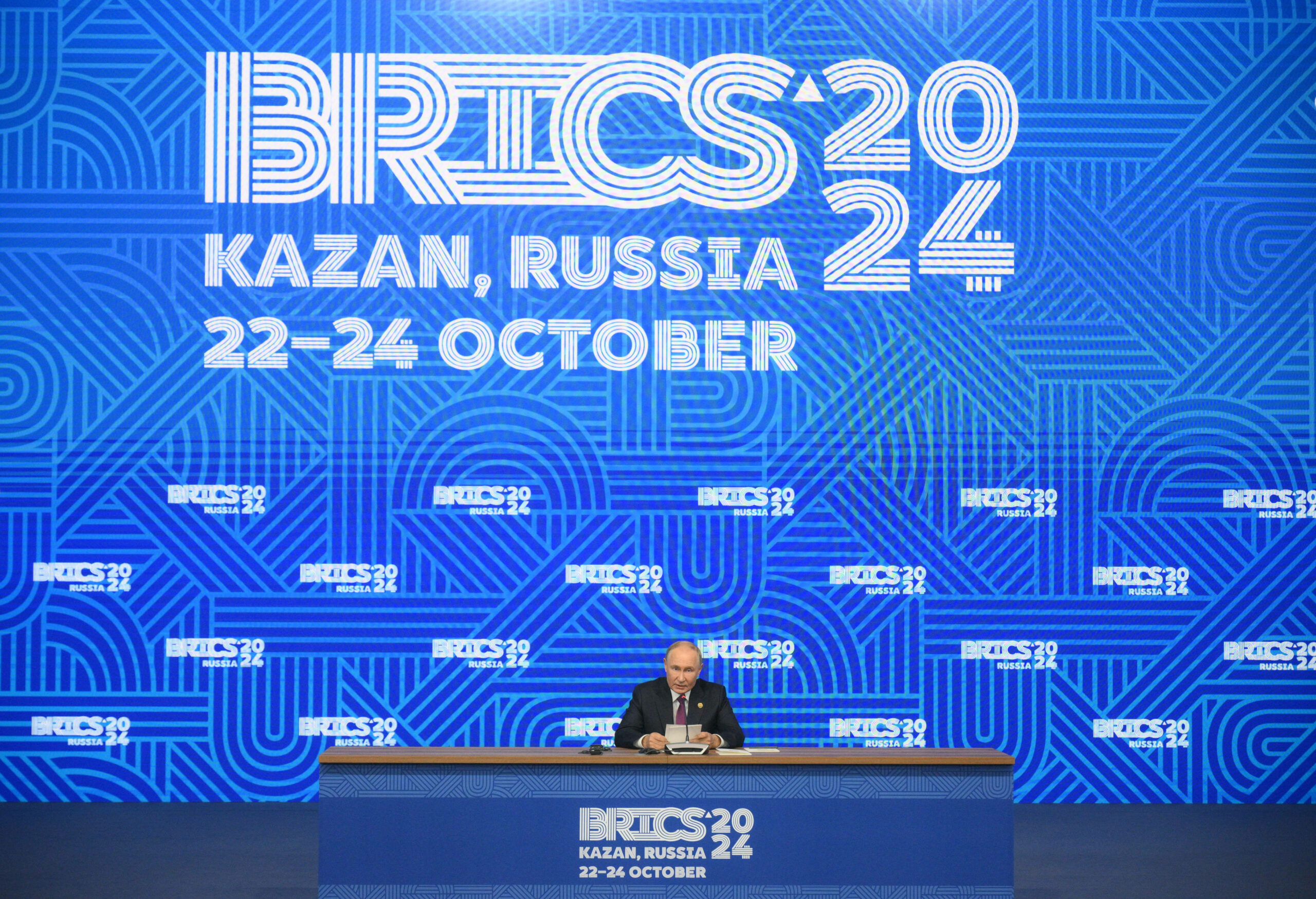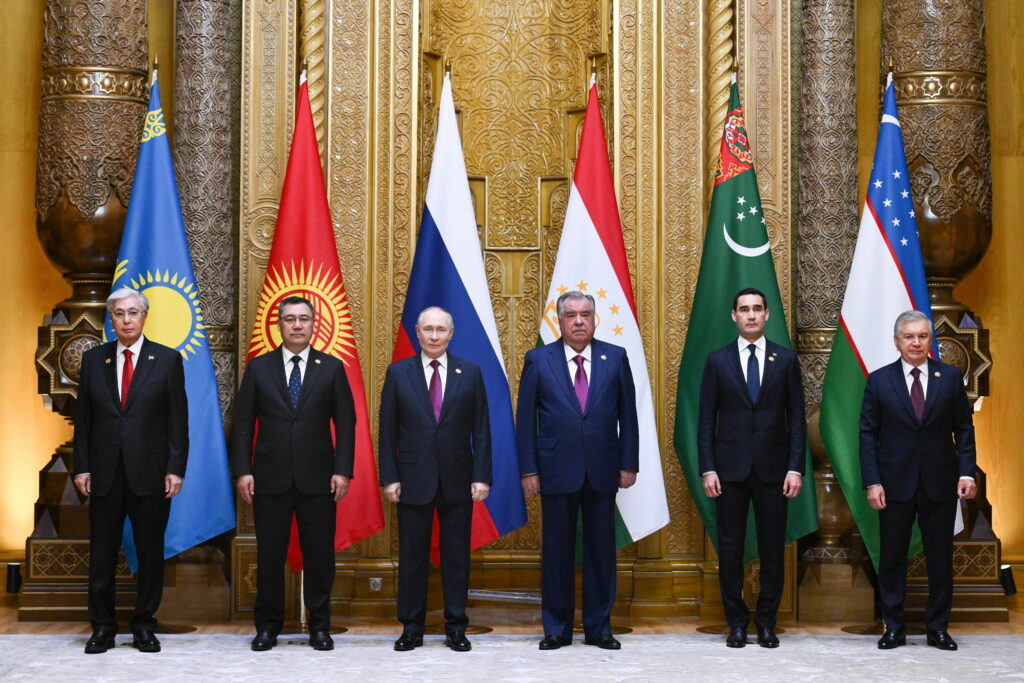The latest BRICS summit — held in Kazan on October 22−24 — has gained far more media attention than previous iterations. That has less to do with any substantive agreements brokered between Brazil, Russia, India, China and South Africa than it does to the summit’s taking place in a Russia otherwise isolated by war and sanctions. Assessments of the summit from across the international community varied widely. There were triumphant reports of a «complete success.» Elsewhere there were more measured appraisals of «success without breakthroughs.» Less positively, some cautioned a «lack of any achievements in the field of economics and finance» or bluntly pointed out «Putin’s failure to secure support in Ukraine.» Others simply declared the summit a «complete failure». It is worth noting that often the authors of said comments spoke about different aspects of Kazan summit: either highlighting the PR results (which indeed showed a failure to isolate Russia) or looked into the economic agenda results (where Russia has failed to secure tangible progress). In this article we will look at how the Kazan summit results were seen from Moscow and what Russia is thinking about the future of the BRICS.
It’s a milestone! (Это веха!)
Quite expectedly, the majority of comments from Russian experts and analysts boiled down to victorious reports, echoing Russian officials. The very fact that the event was held in Russia, despite the war, sanctions and «isolation», is called a victory in itself: «The BRICS summit held in Kazan was a serious event, which is evident from the reaction of not only its enthusiasts, but also its ill-wishers. Much has been said about the significance of the event, we join in the high assessments, especially with regard to the merits of the host state.» Russian experts believe that the most significant results are the presence of common declarations signed by all participants of the expanded BRICS: «For the first time in the history of BRICS, the declaration sets out in such detail the group’s unified vision of the current state of the international system, common or intersecting approaches to fundamental global problems of our time and to acute regional crises, as well as the contours of the desired and achievable world order, as they are currently seen by the group members.» For the Russian leadership, this is in fact a sign of solidarity with the main postulates of Russia’s foreign policy concept: the establishment of a multipolar world, the need to create a counterweight to the United States and reform international governance institutions to forge a new world order.
Developing the idea of the significance of the Kazan forum, Russian experts emphasize that the BRICS format has now truly become a «meeting place»: «The Kazan forum can lay claim to being a milestone. BRICS has reached a new level, when a prestigious but rather amorphous club has turned into a significant meeting place.» Some optimistic experts go further, claiming that the BRICS events are already even more than a meeting place, and soon its members will begin working on new ideas and concepts: «The obvious intention is to turn this fashionable international club into a global laboratory.» It is impossible not to notice that complementary publications boil down to two ideas: it is an achievement that the summit took place in Russia and that we can expect an important and major development of many good initiatives within the BRICS framework in the near future. Often vague and watered-down formulations hint at a lack of tangible achievements inside the Kazan summit.
Many ambitions, few results
A significant number of Russian experts have taken to the «sandwich» style criticism well, first praising Russia for hosting the summit, then criticizing the lack of significant progress and ending their texts with optimistic slogans about the great future of the BRICS. Quite a few careful, moderate and veiled criticisms — de facto recognition of the limits of Russia’s influence on the BRICS — have been published. The main criticism hits at the failure to achieve concrete breakthroughs in the sphere of finance and banking, for example: «BRICS has already challenged this monopoly of Western institutions in world politics and economics: its New Development Bank (NDB) can be seen as a viable, although still modest, alternative to the IBRD.» Leading Russian international experts openly admit that in fact only Russia and Iran, suffering from sanctions, are ready to actively develop alternatives to Western payment systems and other aspects of the «new financial architecture»: «In the case of Russia and Iran, which are fully experiencing the „charms“ of currency hegemony, the transformation is happening out of necessity. But other countries, even those that do not exclude that they may also become objects of similar punitive measures (for example, China), do not consider it necessary to rush.» Some experts, reflecting the Kremlin agenda, noted the insufficiently pro-Russian nature of the summit’s statements on the war in Ukraine: «A basic consensus has been reached, sometimes vague, as in the topic of Ukraine, for example.» The problem of the need to adopt overly vague statements, essentially leaving them at the level of slogans without an obligation to take any action, was noted by Russian experts even before the summit.
BRICS Contradictions
One of the core contradictions of BRICS today is the war in Ukraine and the sanctions imposed on Russia. BRICS members (except Iran) adequately assess the risks of deeper collaboration with Russia, especially on financial issues, which makes Russia’s ambitious plans impossible to implement. All the main members of the club declare the need to stop military actions: only after the war Russia will cease to be toxic for its BRICS partners.
The Russian agenda of confrontation with the West does not find support among the lion’s share of the club’s members: «neither India, nor China, nor Brazil, nor South Africa want forced rivalry with the United States and its allies.» Some experts go even further and recognize the de facto isolation of Russia and Iran even within BRICS on the issue of relations with the West: «In fact, of all the BRICS states, Russia and, to a certain extent, Iran are in conflict with the West today. The rest are not interested in pedaling this conflict at all — so as not to take risks or to not cut off some of the opportunities for their own development.» Russian experts are also forced to acknowledge the growth of internal contradictions in the theBRICS that have arisen as a result of expansion: «Quantitative growth does not come without costs: it can lead to an increase in disagreements within the growing group of members, significantly complicate the decision-making process and, ultimately, can even make the task of achieving consensus on many sensitive issues virtually impossible.» In addition to the main contradiction generated by Russia, within the BRICS framework, one cannot fail to mention the competition between India and China, which is especially noticeable in economic and trade aspects: «Acute trade conflicts remain between individual BRICS member countries. In many markets, these countries compete more than they cooperate with each other.»
The Future of BRICS
As we have already noted above, the Kazan summit did not offer a clear and binding agenda for the institutionalization of the BRICS; most of the plans for the future boil down to slogans about common aspirations and plans to reform international governance institutions in the future. Moreover, in order to achieve consensus, Moscow had to significantly adjust its own rhetoric about the BRICS, which had prevailed before the summit. The final document did not contain statements about direct competition with the West, nor did it openly criticize Western policies towards Russia and Iran; sanctions were left off the agenda. Russian expert assessments of the future of BRICS have also adapted, directly following the official position of the Kremlin.
The consequences of expansion and internal contradictions have made plans to create structures capable of forming any agenda without a consensus of participants impossible which «rules out the transformation of BRICS into a classic international organization with a permanent secretariat.» Many Russian experts also advocate a temporary halt to expansion in order to at least try to find a compromise in the team that was assembled before Kazan: «it would be advisable to temporarily reduce the pace of expansion, without abandoning it in principle, and to focus in the next year or two on strengthening relations with like-minded countries.»
Refusing to involve BRICS in confrontation with the West, Russian experts admit that «BRICS is developing rather evolutionarily, very cautiously and non-conflictually. The organization avoids opposing itself to the West, but at the same time, involuntarily, with its evolutionary nature, it creates an alternative environment.» Andrey Kortunov formulates this idea even more frankly: «BRICS is not an anti-Western alliance, and the group does not seek to deliberately erode or destroy Western institutions — the authors of the declaration very carefully chose their wording, avoiding any turns of phrase that could lead the reader to the idea of the inevitability of a sharp confrontation between the collective West and the rest of the world.»
«We will not see a revolution of the global majority based on BRICS yet»
If we discard the protocol statements about the historical importance of the Kazan summit and remove the wishes for a great future for BRICS, then based on the reactions of leading Russian experts and public commentators in the field of international relations, a picture emerges of the actual recognition of the current ceiling of BRICS development. The confrontation between Russia and the West, the war in Ukraine and sanctions, disagreements among BRICS members on their vision of their own national institutions leaves BRICS a «club of interests», albeit with declared ambitions.










